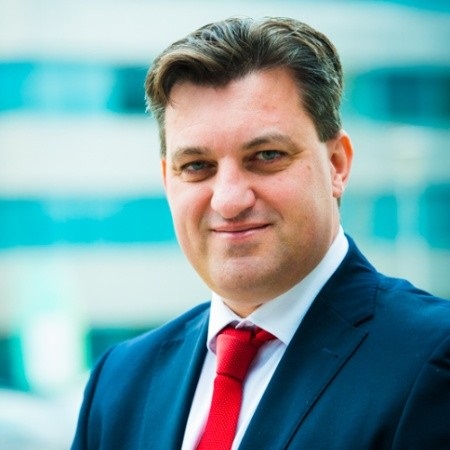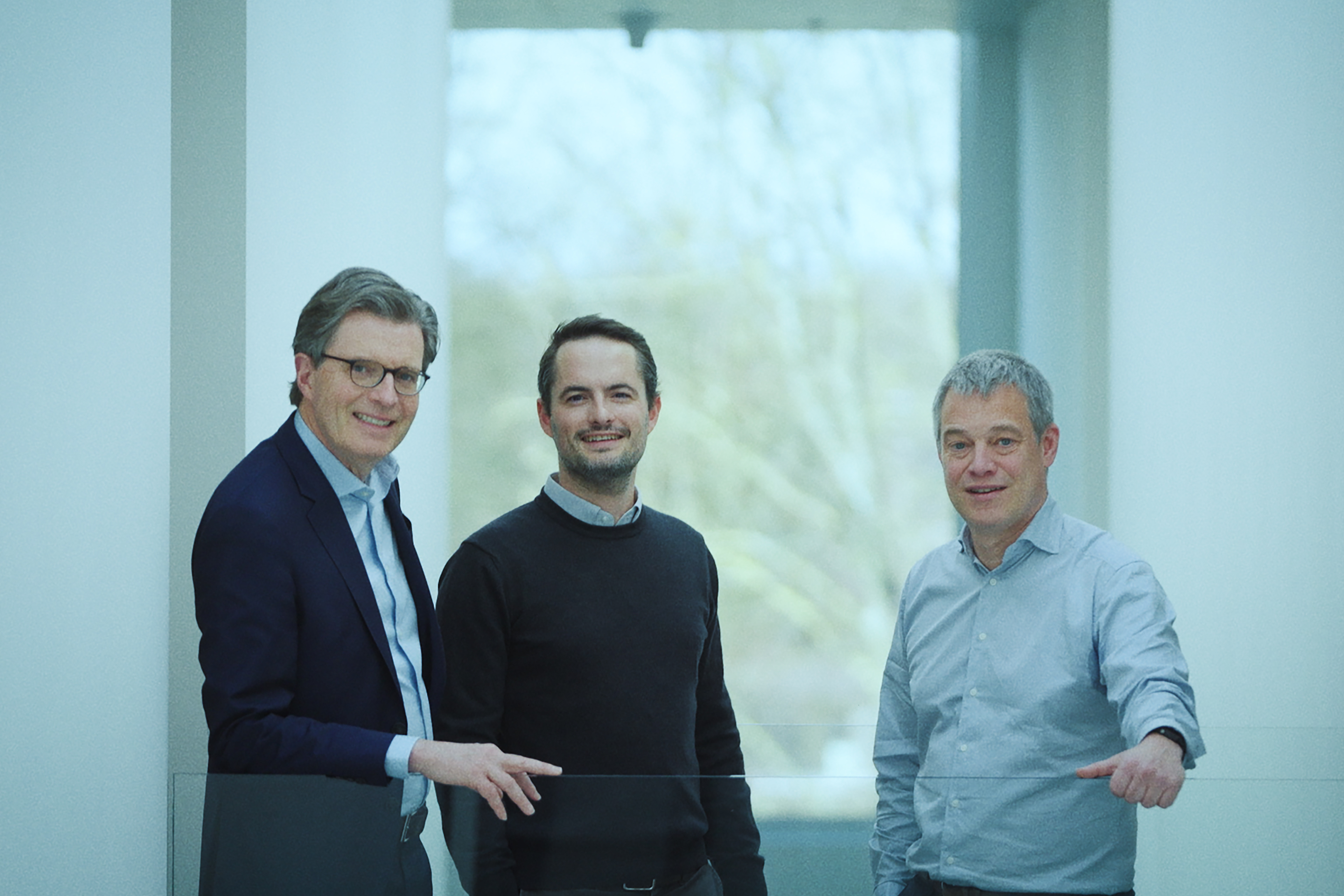EY refers to the global organization, and may refer to one or more, of the member firms of Ernst & Young Global Limited, each of which is a separate legal entity. Ernst & Young Global Limited, a UK company limited by guarantee, does not provide services to clients.

EY survey polled the motivations and concerns of the NextGen.
In brief
- The NowGen should structurally organize discussions on ESG and digital topics with the NextGen.
- Coaching, training, and networking are important for the NextGen. Appointing an external trustee as a coach is a win-win situation.
- More political action is needed to help NextGen implement ESG.
In March, EY celebrated the 10th anniversary of the Family Business Award of Excellence. This award rewards family businesses that excel in sound and sustainable governance. The theme of 2024 was to focus on the Nextgen. This year, the East Flanders-based VPK Group received the award. And with good reason, because the family business is also considered a strong example of how the new generation can be successfully introduced into the family business.
The choice of the NextGen theme was a conscious decision. Through our contact with family businesses in the past few years, we learned that the NextGen is a driver for change and new focal points within family businesses. Especially regarding ESG, but also in terms of the accelerating digitalization. The award ceremony was an ideal moment to have a discussion with both generations. And this in the presence of finalists who are already very far along in their ESG journey.
However, the finalists of the Family Business Award of Excellence are not representative of all family businesses in our country. Their ways of working count as best-practices. Hence, EY sent out a survey to the NextGen so they can state their observations candidly. We inquired about their motivations and concerns. How do they feel about the corporate approach taken by the leading generations with regards to ESG? And most importantly, where and how do they want to make changes? We provide some insights from the survey, analyzed in collaboration with Dr. Raphaelle Mattart, academic expert on family entrepreneurship in corporations.
1. The NextGen wants to be heard more
One of the key takeaways from the EY NextGen Survey is that, within the context of family businesses and particularly with regard to ESG issues, the new generation (the NextGen) is asking to be more involved in strategic decisions. Intergenerational cooperation on these issues can be a tremendous strength for a family business, and yet many NextGen members feel that their voices are not heard and valued enough, if at all. And this runs counter to the NextGen's sense that they are more involved with ESG issues, that they can bring new perspectives, and also that they have more ambition when it comes to ESG matters. So, some argue for a quicker transfer of power, at least on these issues, to bring in a new perspective, combined of course with the experience of the NowGen. Others suggest creating committees to debate and decide on key actions on pressing ESG issues.
It is important to make ESG issues negotiable and involve the NextGen. Doing nothing is not an option.
In any case, the current generations who must pass the torch would do well to respond appropriately. What are the best practices here?
Family Business Award of Excellence finalists exemplify leadership and success
Finalists and winners of the Family Business Award of Excellence can serve as role models. The strategic plan of 2024 winner VPK Group, for example, exemplarily applies the best practices discussed above. Their sequence proceeds as follows. The NextGen family members study first, then gain about five years of relevant experience in another company, to then potentially step into the company if there is an open leadership position for which they have the competencies. In official bodies such as the Board of Directors, they initially join as observers. VPK also has a subcommittee in their family council for a number of topics. People with more affinity for a particular topic are involved in this subcommittee. For example, they have a subcommittee for ESG. This makes it easier to discuss these topics and get the NextGen involved in topics they have more affinity for.
2. The NextGen wants more training, coaching, and networking opportunities
Another finding from the survey is that the new generation places great importance on training initiatives. There is a need for interaction with peers, coaches, and training. Again, this should not surprise the NowGen. The new generation has grown up in a training culture; they have studied longer than previous generations and are used to networking. They also find coaching very normal. In Generation X, coaching still has this sense of "you have a problem".
In peer-to-peer networking, the peers are often other young people in other family businesses or young people who want to launch a start-up. In coaching, the coaches are often family members of another generation or externals. For example, an external member of the board of directors or an advisor to the family business can act as a coach. In situations where the pater familias or mater familias must act as coach, rational communication mixes with emotional communication. You can avoid that with an outside confidant. And if that confidant has a stake in the business, then you have a mentor who also has every interest in helping with the succession. In short, organizing coaching structurally is a real win-win.
In situations where the pater familias or mater familias must act as coach, rational communication mixes with emotional communication. You can avoid that with an outside confidant.
Because we have seen this need with the NextGen for peer-to-peer networking, coaching, and training at EY, we have set up a network for them where they can connect with peers from abroad. With our EY NextGen Academy, we organize training for NextGen members from all over the world. We also created the Tomorrow's Legacy network, a program full of speaker events and company visits for NextGens. We already felt a lot of enthusiasm from them during such initiatives. And this is again reflected in the results of this survey.
3. The NextGen is asking for more political action
A third and final notable finding from the survey relates to politics. The NextGen sees a lack of government incentives or concrete initiatives to help family businesses with ESG issues. The NextGen is very willing to work on ESG but looks to the government to provide incentives to facilitate implementation. Especially since there are inhibiting factors such as financial and administrative burdens, as well as international competition with companies that are not bound by ESG rules. These factors are an additional barrier to the NextGen trying to convince the NowGen to make substantial changes.
Politicians must be aware that, as we speak, in many companies the baby boomers are paving the way for the new generation. Our government has everything to gain if those successions go well. Because when they go well, it helps companies to live up to the green deal, among other things. My appeal to politicians is therefore to pull out all the stops to make those transitions go as smoothly as possible. This can range from subsidizing coaching and training to tax reductions.
By way of conclusion, I advise the NowGen not to fall into classic succession habits and to be open to the NextGen's input. And above all, the NextGen must make themselves heard even more. They must dare to stand up for their beliefs and put things on the table. Because ultimately they will have to make it happen.
For more results and insights from the EY NextGen Survey, reach out to Eric Van Hoof.
EY Belgium newsletter
Subscribe to our monthly newsletter and stay updated on our latest insights.
Summary
Family businesses across Belgium are experiencing an era of intergenerational collaboration where three and sometimes even four generations need to work together. Each generation has different views, ways of working, and ways of communicating that can make collaboration and handover difficult. With the EY NextGen Survey, we identified the drivers, desires, and concerns of the new generation. From the results, both NextGen and NowGen can learn lessons for managing the succession and future of their businesses.
Related articles
VPK Group triumphs as 2024 ambassador of the Family Business Award of Excellence®
VPK Group confirms its position among family businesses as a leader in sustainability, sound governance and growth.
Generations in dialogue: The Belgian family business in transition
Experts emphasize the importance of open conversations and effective governance for sustainable growth and continuity.





